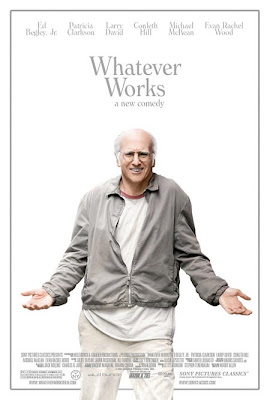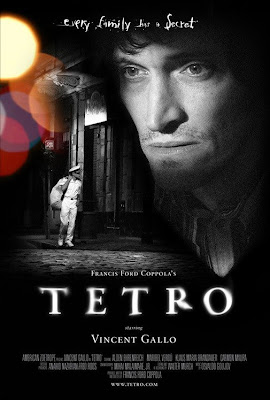 Fallen from Grace
Fallen from GraceI realize up front that it really doesn't matter what I, or any other critic, say about this movie. Studios love this type because it is generally known as "critic proof." You can talk up a storm about the inadequacies a movie has, but because it is stuck on high octane action and constantly bombarding the audience with explosions and visual effects, the masses flock to the film anyway. Basically, you can make a movie that can be lazy on the actual storytelling but still manages to be a big box-office success with the help of heavy promotion. Such is the description of nearly every Michael Bay film until this point, and his latest is no different.
Accurately picking up two years after the events of the first film, Shia LaBeouf returns as Sam, the protagonist from the first film who is off to college now and is desperate to keep the long distance relationship with his girlfriend (Megan Fox), perhaps the only woman in the world who wears lip gloss and short shorts while working in a body shop. However, Sam just can't escape the hectic battles between the Autobots and the Decepticons. The robots are still battling, and have now raised Megatron back from the dead in order to retrieve a device to activate a machine hidden beneath the Giza Pyramids that steals the energy from the sun and direct it to the robots home planet where the evil races can reign again.
As you can see, this plot is needlessly complicated, and original
Transformers writers Roberto Orci and Alex Kurtzman, along with newcomer Ehren Kruger, don't do great justice by dragging out this premise for all that it is worth. Orci and Kurtzman, in particular, are capable of creating a script that can be a tad skimpy on the plot but is able to flush out interesting characters (this year's
Star Trek is a great example). Here, they have tried to overload the plot with so many details that they have left the characters to become none note caricatures of their former selves. The plot in these types of movies are always going to be the least interesting part, but the writers want to try to make up for that. They are inherently unsuccessful.
When they said Michael Bay was directing the first film, it was somewhat expected but only with a hint of sarcasm. With that standard, Bay delivered a movie that wasn't without its flaws, but almost seemed to celebrate the ridiculousness of his films and laid out those overblown elements to an almost comedic level that found enjoyment. I did enjoy the first film. Now Bay seems to think that all of those things that were harpooned a bit in the first film are to be taken seriously now, and the film continues to be littered with the rotating camera shots around two characters, disorienting editing, varying degrees of sunlight within a single scene, and slow motion sprinkled in fast action sequences. Bay only does what everyone despises him of doing, and even worse, believes it will make the movie better. His intentions are misguided, as would anyone's who think a scene where flaming balls of fire from the sky hitting battleships is a good placement even when it brings up memories of
Pearl Harbor and
Ardmageddon.I will say that LaBeouf is perhaps one of the few things in this movie that provides some excitement. His quick delivery and nervous energy seem like perfect fits in any movie of his, and he is able to deliver some great laughs. The same can be said of John Tuturro as the secret service agent disgraced from service and a little robot who seems to be possessed by the spirit of Ron Carey (if you know who that is, then you already know you won't like this movie). Other than that, Fox is continually bland along with returning stock characters like Josh Duhamel, Tyrese Gibson, and Kevin Dunn and Julie White as the parents (White particularly cranks up the annoying mannerisms here).
In short, this movie contains nearly everything that annoyed me about the first film amplified by about a hundred times. The nauseating action sequences, and uninteresting plot, the long blocks of expository dialogue, the slow motion between the fast action, Sam's mother and robots that perpetuate racial stereotypes overpower whatever humor a few people let onto. This is a really bad film that will more than likely make $200 million in the first weekend. And there's not a thing any critic can do about it.
*1/2 / ****; GRADE: D+ Working Title
Working TitleI thought I had Woody Allen figured out last year. I was almost certainly convinced that what he needed was a change in location time and time again. After his work started to suffer a bit while he was dormant in New York, he picked up his bags and moved to England where he gave us the brilliant film
Match Point. Most people bolstered that the return, that was until it seemed like he stayed there too long (
Scoop and
Cassandra's Dream ring a bell? It doesn't for most people). So he picked up his stuff again and moved to Spain, and we got
Vicky Cristina Barcelona. I wouldn't have called that a great film, but I guess enough people liked it to let Penélope Cruz be another in a long line of supporting actresses to win an Oscar for one of his movies. I thought we'd have to wait until he got to South Africa before he gave us another great film. Instead, he's back in New York, and I this film reminds us why he needed a break from the big city.
Allen returns to New York for the first time since 2004's
Melinda and Melinda for his 40th feature film as director. Here he continues his popular tirades on life, love and the pursuit of pessimism now through Larry David, of TV's
Curb Your Enthusiasm, essentially playing the type of character Allen plays in his own movies, only with slightly more cynicism to work with David's comedic timing. David is Boris Yellnikof, a self-proclaimed genius with content for the world; so much so that he tried to commit suicide by jumping out a window but landing on the awning below. Now alone and divorced, he is met with Melodie (Evan Rachel Wood), a young and sweet Southern girl making a life in New York and begs her way to staying with Boris. As their relationship grows, he world view is tested and he continues to view the world in his own special way.
What I notice about many of Allen's contemporary films is that he has his characters move around a lot which creates this kinetic energy for the characters until it reaches a tension peaking moment at the end. That doesn't really happen here, and instead the characters feel like their wallowing in the film's premise. Allen has Boris go through these monologues that break the fourth wall and talk directly into the camera. That's a major selling point for the movie, and if you like it, then you'll accept most of what follows. It's difficult to do so, however, when all his talk goes around in circles and never comes to any significant conclusion. All his speeches circle around the same ideas and eventually become rather tedious.
All of those complaints are in the first part of the film, which lacks the energy and wit to be on par with what Allen can do. He introduces Patricia Calrkson as Melodie's grassroots, Christian mother who is initially provided to be the dumb religious fanatic to foil the secular progressive mindset of Boris. In the second part, however, the film starts to lighten up a bit, and becomes more complex. It attempts to deconstruct the stereotypes of similar films in a more subtle way, and the idea of falling in love and changing one's personality is handled with a much gentler hand.
David is a very good comedic actor, but the familiarity of this character often times prevents him from becoming endearing. Because he is basically playing Allen himself, his entire insight is dismissed because it has been handled better in the past. Same is said for Wood, giving a reminder of Mira Sorvino in
Mighty Aphrodite and not really giving much more of a personality trait than that. Clarkson was on the verge of being wasted like in Allen's last film, but this time she is given a well handled character arch that is provided nicely. Henry Cavill makes a sweet and engaging turn as a younger man pining for Melodie, but Ed Begley Jr. as Melodie's father makes an appearance in the second half to almost makeup for the lack of humor that was gone when Clarkson's character changed. There was potential for him to be funny (he mentions that he thought his Protestant daughter was kidnapped by Mormons), but that quickly fades away and his character arch feels tacked on and forced.
Whatever Works is only about an hour and a half, but it quite honestly feels much longer than that. That is because it feels like an endless speech in what it's trying to say and when it finally gets there, the satisfaction is little felt. The truth is that Allen has done this film in much better circumstances, and the rather lazy feeling that New York gives him here can't be amended by some good acting and a surprising second half. Allen is still going to be capable of doing great work, but I think now is definitely the time for him to extend that break a little longer.
**1/2 / ****; GRADE: C+
 Coppola Rising
Coppola Rising


